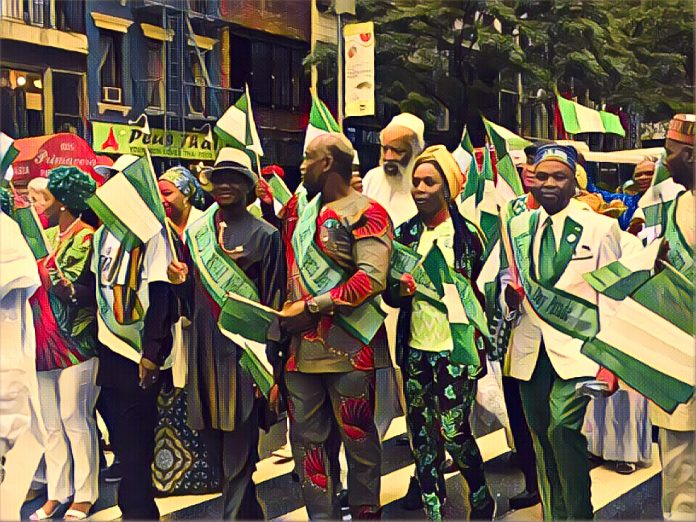KEY POINTS
- Nigeria celebrates 64 years since gaining independence in 1960.
- Transition to democracy in 1999 marked a return to civilian governance.
- #EndSARS protests in 2020 highlighted youth activism and demand for reforms.
On October 1, 2024, Nigeria celebrates its 64th year of independence from British colonial rule. Over these years, the nation has seen tremendous growth, faced numerous challenges, and achieved key milestones that have helped shape its identity as a resilient and diverse country.
From gaining freedom to fighting for democracy, Nigeria’s story is one of perseverance and hope. Below are five pivotal milestones that highlight Nigeria’s journey and achievements as it turns 64.
Independence from British Colonial Rule (1960)
Nigeria’s independence on October 1, 1960, marked the dawn of a new era. It was a day filled with hope and pride as Nigerians took charge of their destiny, ending decades of colonial rule. This achievement signaled the start of a sovereign Nigeria, free to govern itself and decide its future.
Patriotic fervor swept across the country as the green and white flag was raised for the first time, symbolizing freedom and unity. Independence was not just the beginning of Nigeria’s political journey; it was the foundation of a sense of national identity that continues to inspire the country to this day.
Civil War and National Reconciliation (1967-1970)
The Nigerian Civil War, also known as the Biafra War, from 1967 to 1970, was one of the most challenging periods in Nigeria’s history.
The war, fought between the Nigerian government and the secessionist state of Biafra, was a tragic chapter that led to the loss of countless lives and tested the unity of the young nation. However, in the aftermath of the war, Nigeria took significant steps towards reconciliation and rebuilding.
The “No Victor, No Vanquished” policy adopted after the war symbolized the country’s commitment to unity. Efforts were made to reintegrate the regions affected by the war and to promote national healing.
Despite the devastation, this period ultimately strengthened Nigeria’s resolve to remain united and to work towards a common future. It shows the resilience of the Nigerian people and their desire to stay together despite deep divisions.
Return to Civilian Rule and Establishment of the Fourth Republic (1999)
Another major milestone in Nigeria’s journey was the return to civilian rule in 1999, which marked the beginning of the Fourth Republic.
After nearly 16 years of military dictatorship, the transition to democracy was a turning point for Nigeria. The election of President Olusegun Obasanjo was a symbol of hope and renewal, as it ended the cycle of military coups that had plagued the country since independence.
Democracy brought with it political stability, civil liberties, and the promise of a brighter future. Nigerians could once again participate in free elections, hold their leaders accountable, and have a voice in governance.
This period also paved the way for important reforms aimed at strengthening institutions, fighting corruption, and promoting transparency. The Fourth Republic is a significant chapter in Nigeria’s history, highlighting the importance of democratic governance and the power of the people to shape their future.
Becoming Africa’s Largest Economy (2014)
In 2014, Nigeria officially became Africa’s largest economy, a significant milestone that highlighted the country’s economic potential and its role as a continental leader. The rebasing of Nigeria’s Gross Domestic Product (GDP) revealed the true extent of its diverse economy, which extended far beyond oil production to include telecommunications, agriculture, entertainment, and services.
This achievement was a moment of pride for many Nigerians, showcasing the resilience of the country’s economy despite challenges such as fluctuating oil prices and political instability.
The recognition of Nigeria as the largest economy in Africa not only boosted the nation’s confidence but also attracted increased foreign investments and economic partnerships. It demonstrated the strength of Nigeria’s private sector, the ingenuity of its entrepreneurs, and the potential for further growth.
#EndSARS Protests and Police Reforms (2020)
The #EndSARS protests in 2020 were a defining moment for Nigeria, especially for its youth. What began as a movement against police brutality quickly grew into a nationwide call for accountability, justice, and better governance.
The protests, largely driven by young Nigerians, brought attention to the abuses of the Special Anti-Robbery Squad (SARS) and highlighted the broader issues of systemic injustice and corruption. They showcased the power of collective action and the determination of Nigerian youth to fight for their rights and demand change.
As Nigeria celebrates its 64th year of independence, these milestones serve as a reminder of the country’s resilience and determination to build a better future. From independence in 1960 to the more recent #EndSARS protests, Nigeria’s journey has been shaped by both triumphs and challenges.
Each milestone represents a step toward the development of a stronger, more unified nation. While Nigeria has made much progress, it still needs to address the remaining challenges. The spirit of unity, courage, and perseverance that has defined Nigeria for the past 64 years will continue to guide its journey towards a brighter future.



